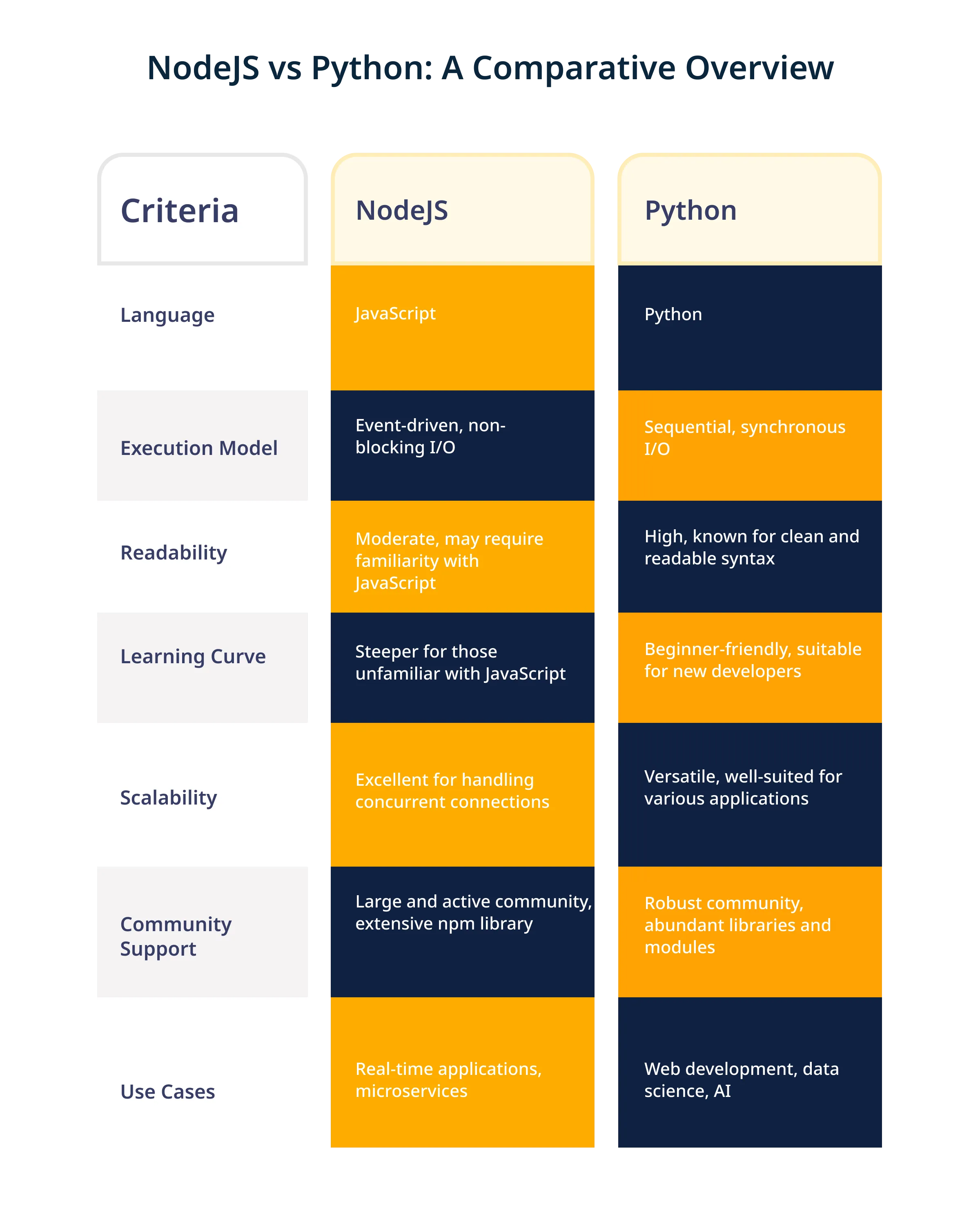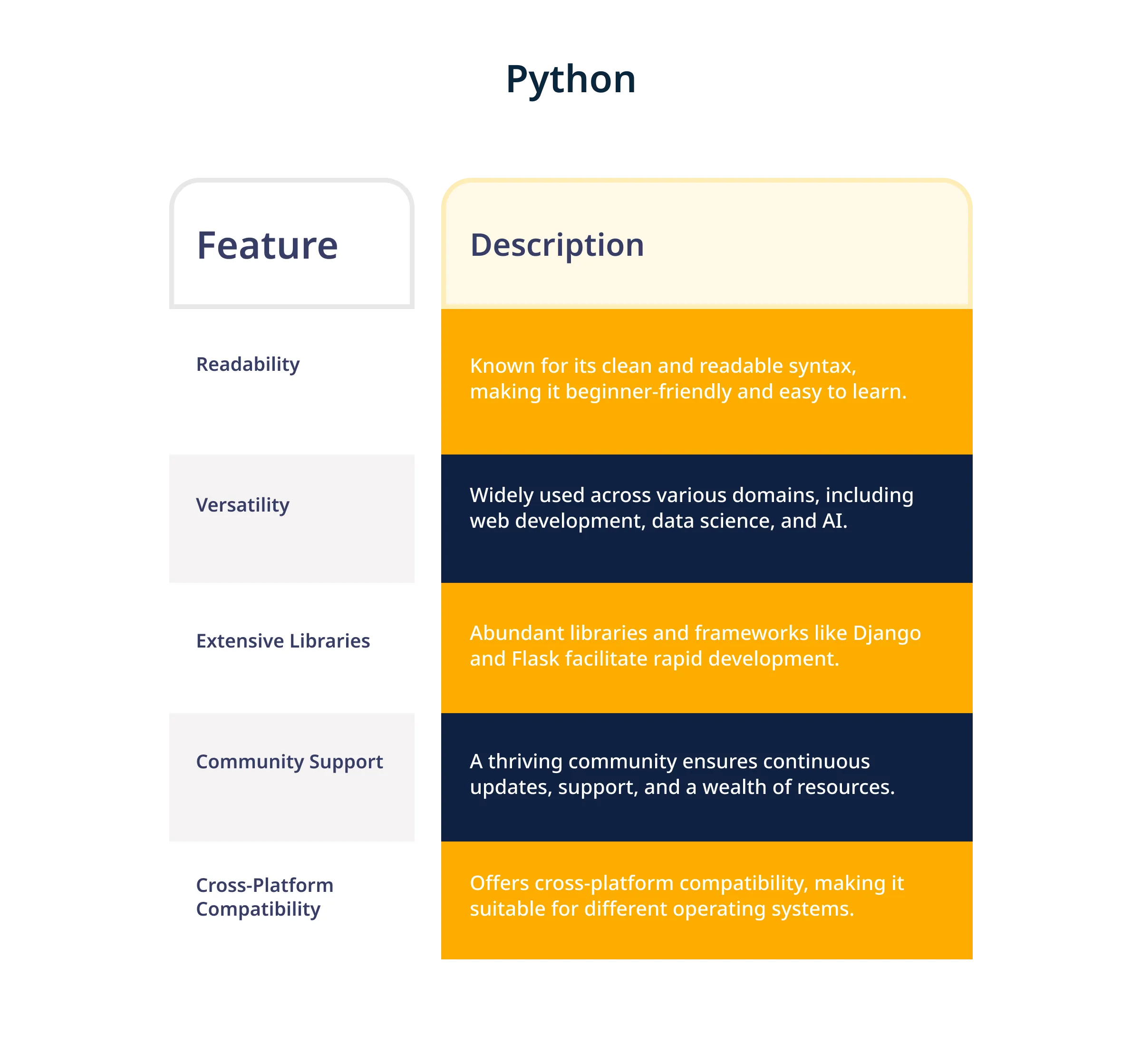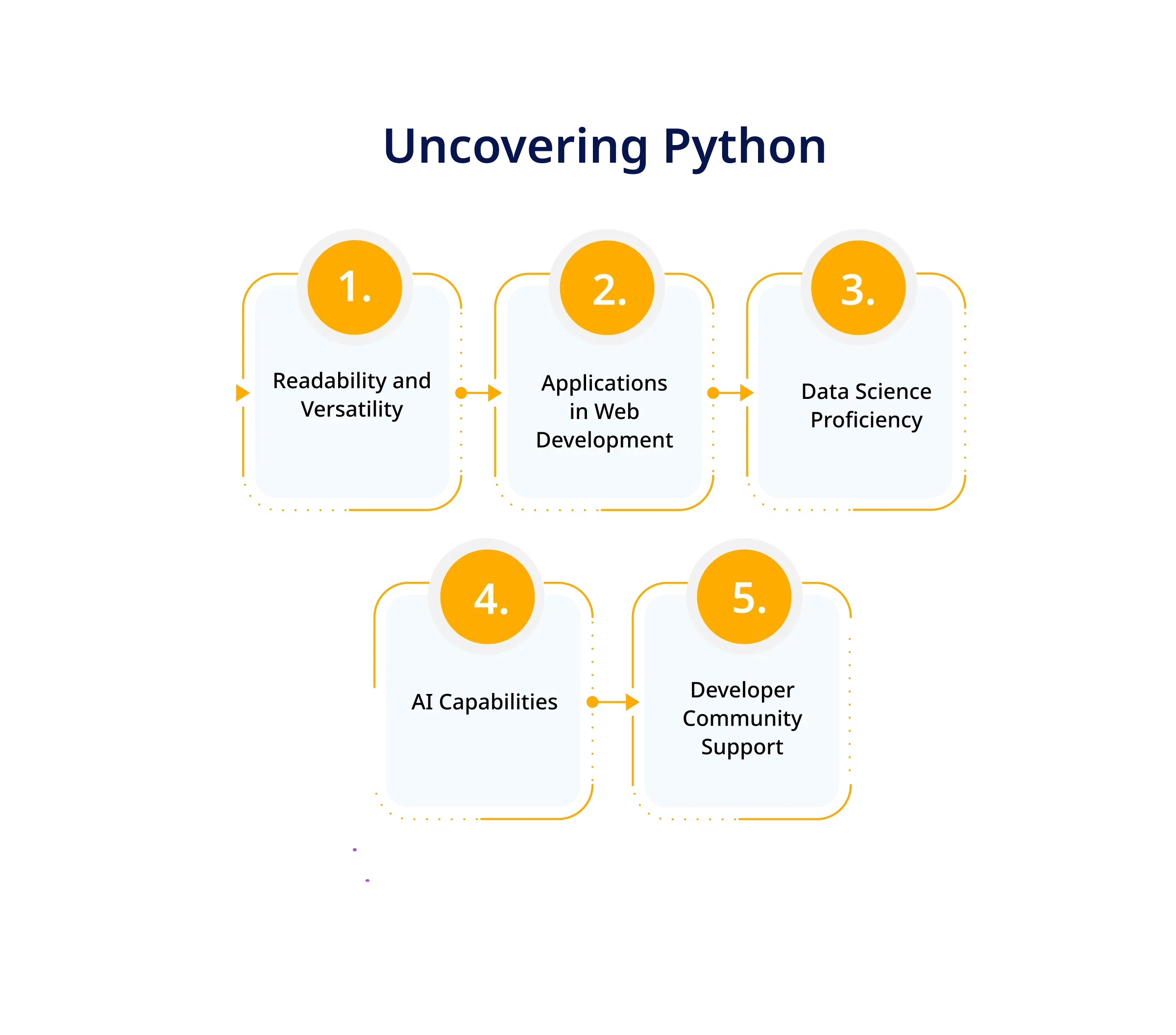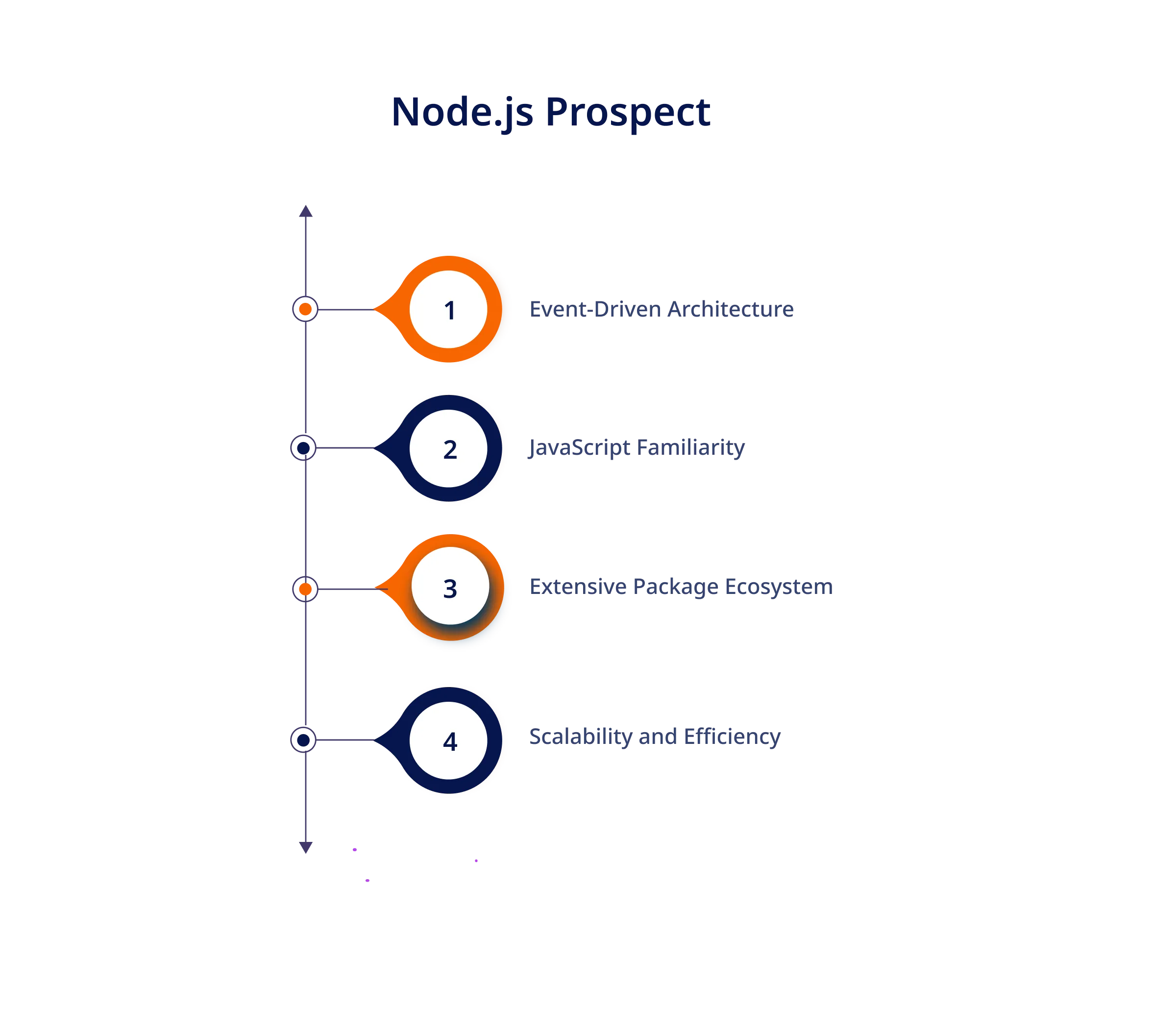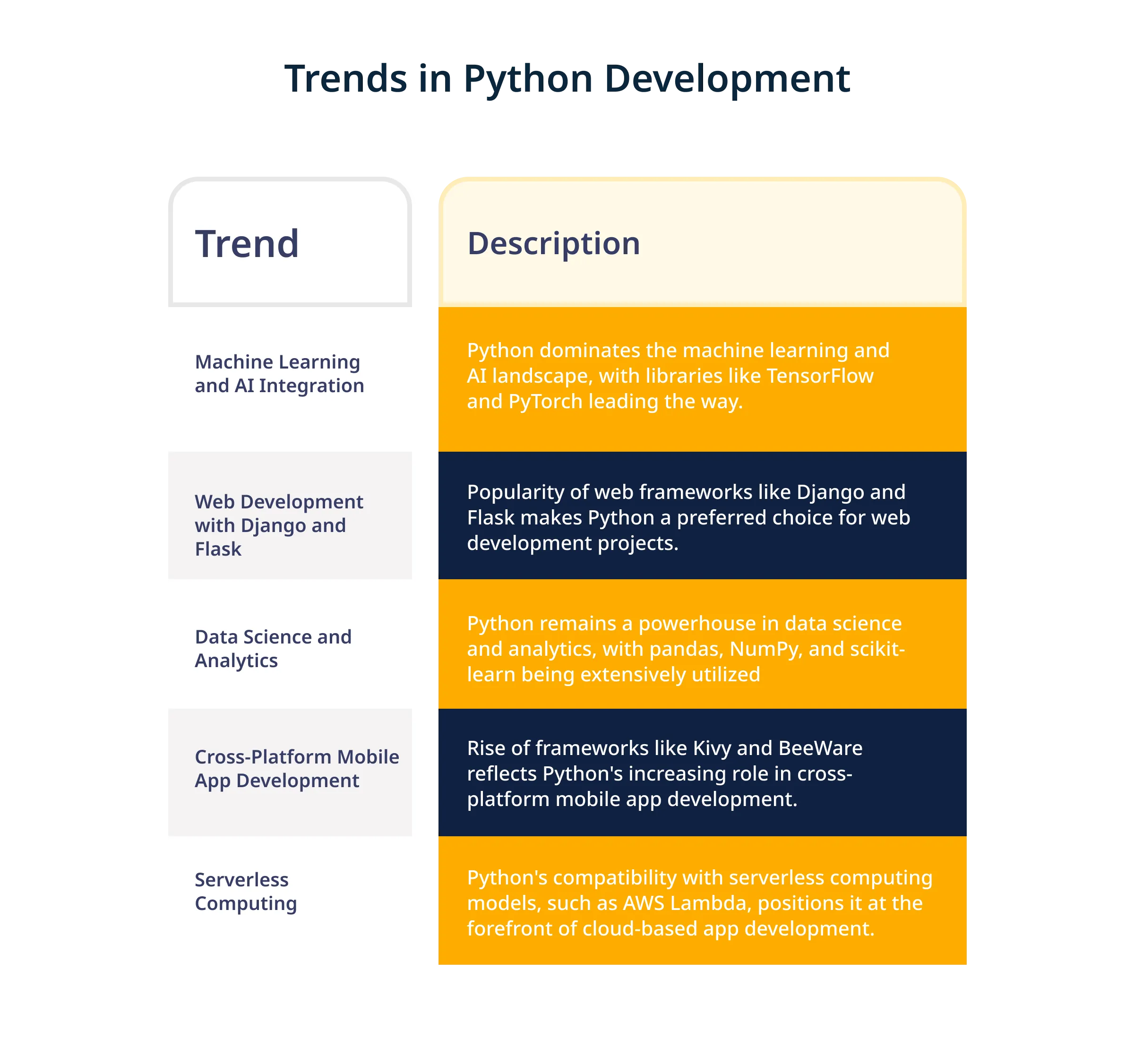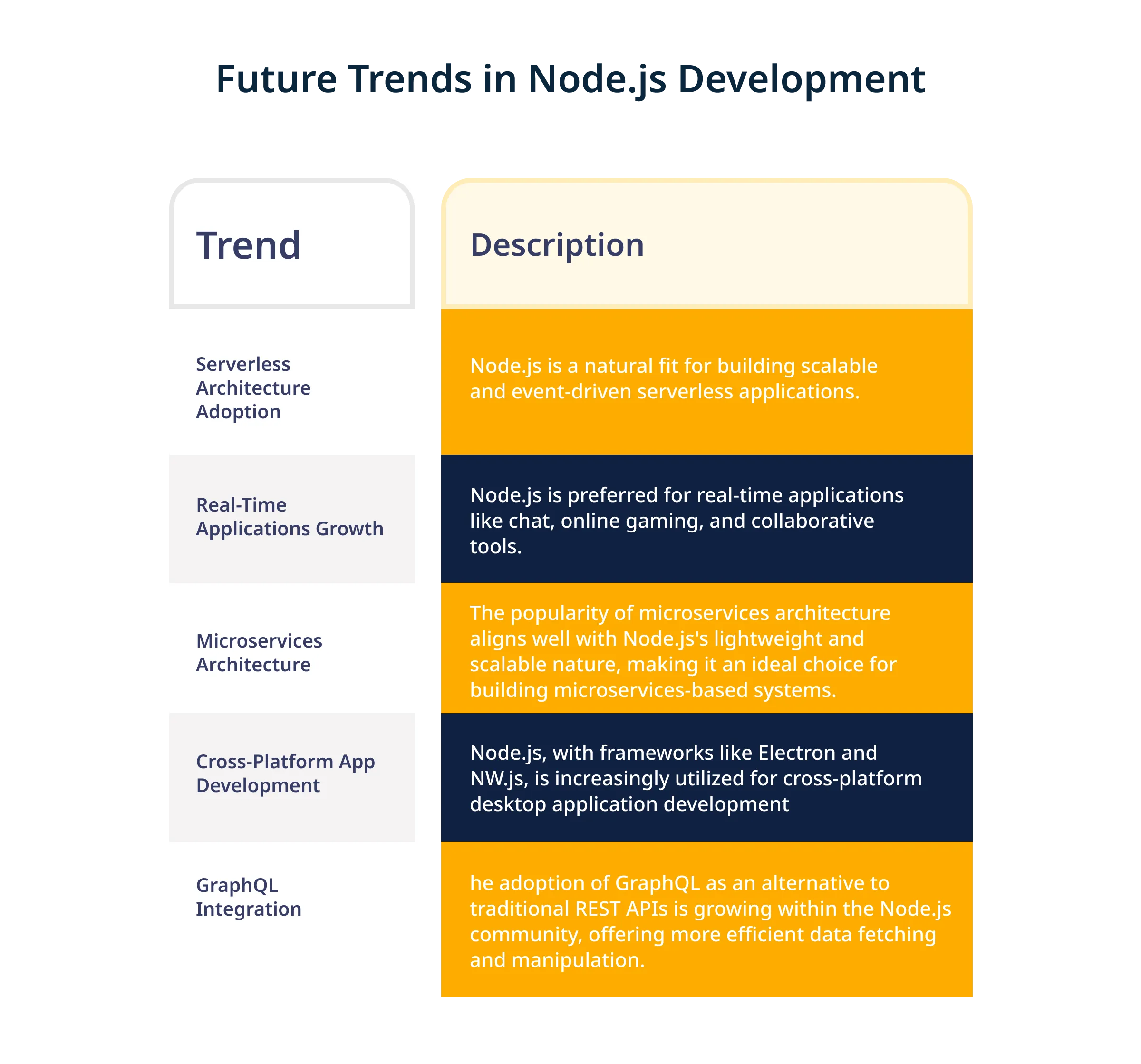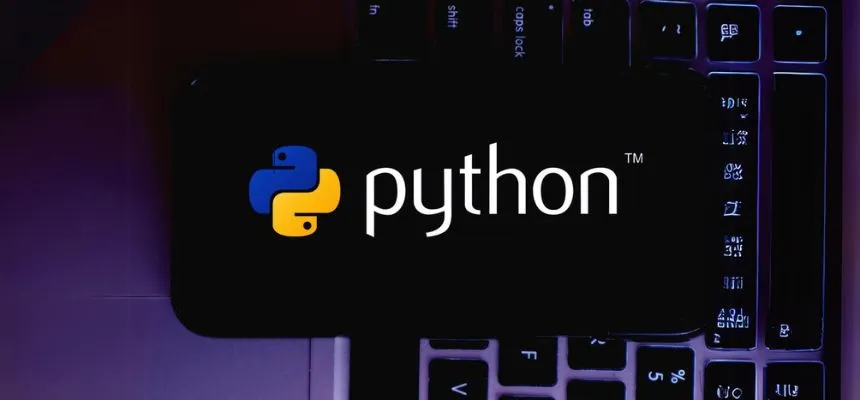Node.js or Python? This battle of popular backend frameworks perplexes developers everywhere.
Both platforms enable the building of robust, scalable web applications. Node touts speed with its event-driven, non-blocking I/O architecture.
Python boasts immense libraries and ease of use from significant white space and dynamic typing.
But how do you choose between these heavy hitters?
This Node.js vs Python guide examines the core technical and practical differences developers should know.
Discover when Node.js excels for real-time apps while Python shines for data analysis.
By exploring critical contrasts like their threading, package management, and coding style approaches, you can make an informed Node.js vs Python choice aligned to your project needs.
We’ll also cover which frameworks, databases, and dev tools best complement each.
Let’s dig in to uncover when to choose Node.js or Python!
Understanding Your Project Requirements
When deciding between Node.js and Python, understanding your specific needs and project requirements is critical.
Let’s break it down:
1. Project Scope: Consider the size and complexity of your project. Are you working on a small-scale application or a sizeable enterprise-level system? Think about the functionalities your project requires. Will it involve real-time features, data analysis, or machine learning?
2. Development Speed: Evaluate your timeline. Do you need to deliver quickly, or is there flexibility for a more gradual development process? Consider the learning curve associated with each technology. Are your developers more familiar with Node.js or Python?
3. Scalability: Examine your project’s potential for growth. Will it stay small, or do you foresee significant scalability requirements in the future? Node.js is known for its scalability in handling concurrent connections, while Python excels in versatility across various domains.
4. Community and Support: Explore the developer communities for both Node.js and Python. Which one offers the support and resources your team can benefit from? If you’re in India, consider a Node.js Development Company in India that might provide local expertise and support.
Also Read: Web Development Done Right with “Python” Language
Remember, the choice between Python and Node.js isn’t just about features but aligning the technology with your specific project needs.
Take the time to assess these factors, and you’ll be on your way to making an informed decision. Read our blog post on “Choose The Right Web Development Technology For Your Project” to decide wisely.
Elevate your digital presence with the dynamic duo of Python and Node.js
Exploring Node.js
To compare Node.JS vs Python, you must understand both frameworks to make wise decisions.
We’ll begin with Node.js, a versatile tool in the tech toolbox. Here’s what you need to know in a nutshell:
1. Event-Driven Architecture: Node.js uses an event-driven, non-blocking I/O model, making it swift in responding to multiple requests simultaneously. Ideal for real-time applications like chat applications and online gaming.
2. JavaScript Familiarity: Node.js uses JavaScript, a language already known to many developers, allowing for a seamless transition for front-end developers into back-end development.
3. Extensive Package Ecosystem: Node.js leverages NPM (Node Package Manager), which is home to a vast collection of reusable code packages. This can significantly speed up development.
Also Read: Node.js vs. Golang: Who Will Win The Race of Backend Development?
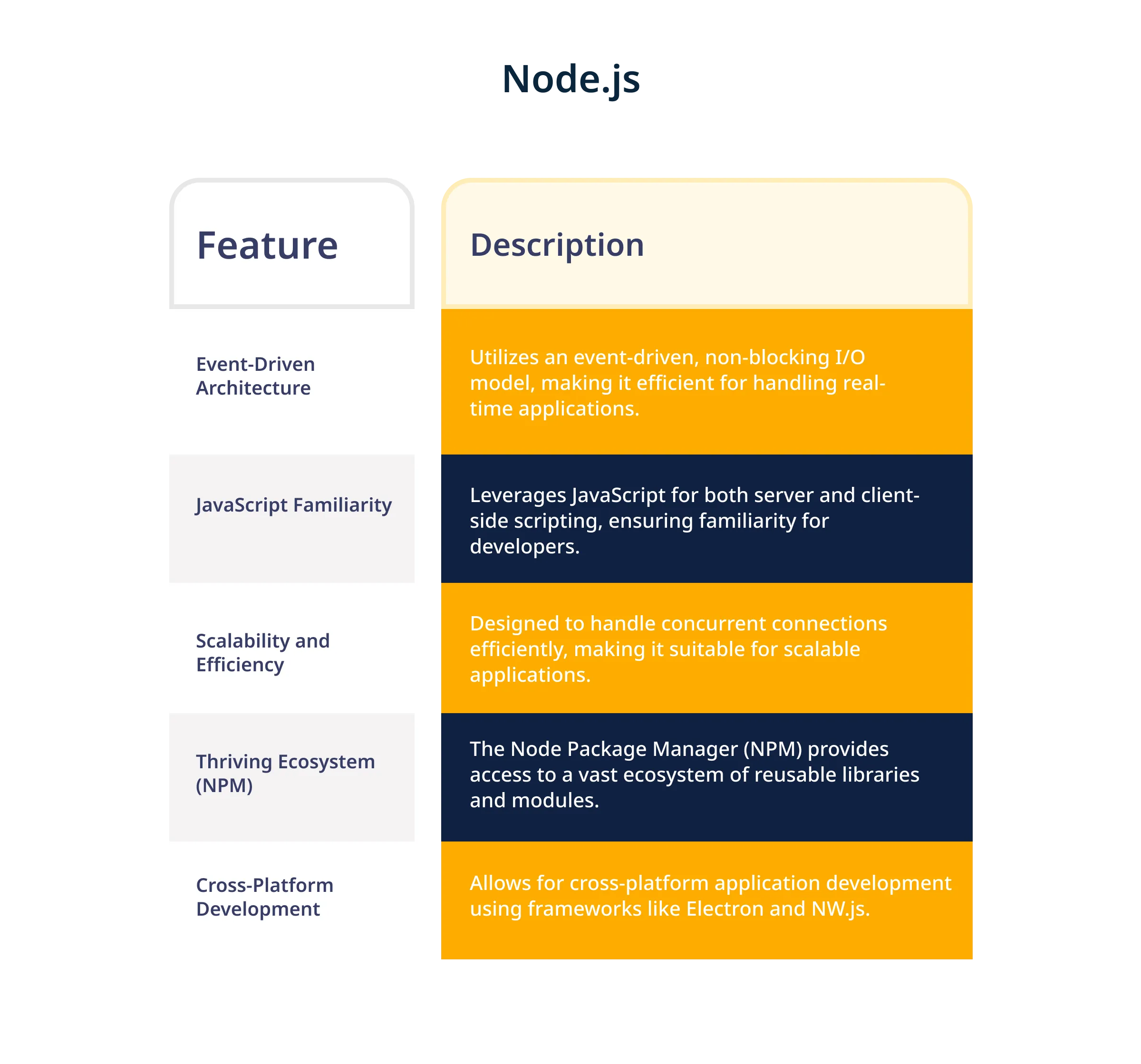
5. Node.js Development in India: Tapping into Node.js Development company in India can provide local expertise and personalized support. Look for reputed top NodeJS App development companies specializing in Node.js development, ensuring a high-quality outcome.
Explore the possibility of hiring top Node.js developers in India, known for their skills and cost-effectiveness.
Consider companies that house skilled and experienced Node.js developers to elevate your project.
Node.js for web development shines in specific scenarios, particularly real-time applications, and situations demanding high scalability.
Assess your project needs, and Node.js is the perfect fit for your development journey.
Discovering Python: Unveiling Simplicity and Versatility
Let’s make this Node.js Vs Python comparison fair by also understanding Python.
Beginning to discover Python is like unraveling the layers of a user-friendly programming language known for its simplicity and versatility.
Here are the key points:
1. Readability and Clean Syntax: Python has a syntax designed for readability, making it a preferred choice for beginners and experienced developers. The code resembles plain English, minimizing complexities and reducing the chances of errors.
2. Versatility Across Domains: Python finds its prowess in web development and spans various domains, including data science, artificial intelligence, and machine learning. Its versatility enables developers to seamlessly transition between projects, leveraging the language’s adaptability.
3. Thriving Developer Community: The Python community is a vibrant ecosystem where developers collaborate and share resources. This collaborative spirit ensures a wealth of libraries and frameworks, enriching the development experience.
4. Considering Local Expertise: Engaging a Node.js Development Company in India brings local expertise to the forefront. This strategic move aligns with project goals and ensures a tailored approach to web development.
Uncovering Python is more than understanding code; it’s embracing a language that simplifies complexity and offers a canvas for diverse technological landscapes.
While Node.js thrives in real-time applications, Python stands out in scenarios where readability and ease of use take precedence. Choosing between them depends on your project’s specific requirements.
Our expertise ensures your brand stays ahead in the digital race.
Navigating the Node.js vs Python Crossroads
In choosing between Node.js and Python, a well-defined decision-making framework acts as your compass.
Let’s break down this framework into digestible bits:
1. Project Requirements Assessment: Node.js shines in real-time applications, whereas Python thrives in readability for various projects. Assess your project’s needs, considering scalability and real-time functionalities.
2. Development Speed and Learning Curve: Consider your team’s familiarity with JavaScript, as Node.js uses it for development. Evaluate if a quicker learning curve or immediate deployment is more crucial for your project.
3. Scalability and Future-Proofing: If scalability is a top priority, Node.js might be your go-to for handling concurrent connections efficiently. Conversely, Python is versatile, making it a robust choice for diverse future project requirements.
4. Community and Support: Get benefits from the robust communities supporting both technologies. Engaging with top NodeJS app development companies or considering custom app development services might be beneficial for personalized assistance.
5. Local Expertise Advantage: Hire top Node.js developers in India who align your project with local expertise. This strategic move ensures a tailored approach to web development, meeting your unique business requirements.
Navigating the Node.js vs. Python crossroads requires a great understanding of your project’s intricacies.
This decision-making framework is your guiding light, ensuring your choice aligns seamlessly with your development goals.
Partner with ValueCoders for tailored solutions that propel your brand to new heights
Real-world Stories
In software development, real-world success stories are crucial in shaping decisions.
To better understand their practical applications, let’s explore compelling real-world stories showcasing their prowess.
Python: The Power of Simplicity and Versatility
1. Dropbox: From the start, Dropbox, the cloud storage pioneer, chose Python for its simplicity and versatility. Python’s ease of use and adaptability became instrumental in managing their extensive user base and data storage requirements.
2. YouTube: Initially using PHP, YouTube, the world’s leading video-sharing platform, made a strategic shift to Python for its superior performance, flexibility, and scalability. Python became a cornerstone in handling the platform’s dynamic content.
3. Instagram: As a popular photo-sharing app, Instagram relies on Python as its backend language. Python’s robust framework proves invaluable, especially in managing real-time interactions seamlessly.
Node.js: The Asynchronous Ace
1. Netflix: Leveraging Node.js, Netflix powers its recommendation engine, ensuring real-time personalization for users. The asynchronous nature of Node.js plays a crucial role in delivering a seamless and personalized streaming experience.
2. Uber: Node.js plays a vital role in Uber’s intricate real-time data streaming, facilitating efficient dispatching and tracking of drivers and riders. The asynchronous capabilities of Node.js align perfectly with the demands of Uber’s complex operations.
3. PayPal: The secure online payment platform, PayPal, relies on Node.js for its backend infrastructure. This choice ensures seamless and secure transactions for millions of users worldwide, emphasizing Node.js’s reliability and performance.
Comparing the Chronicle
1. Python for Web Development: Python emerged triumphant in creating visually appealing and user-friendly web applications. Its readability and robust frameworks make it a top choice for web development.
2. Node.js for Real-Time Interactions: When real-time interactions are paramount, Node.js takes the lead. Its event-driven architecture ensures swift responsiveness, making it the go-to for applications requiring instant updates.
These real-world stories underscore the practical advantages of Python and Node.js in diverse scenarios, offering insights for developers and project leaders navigating the choice between the two.
These real-world examples vividly illustrate the distinct strengths of Python and Node.js.
Python’s simplicity, adaptability, and proficiency in data science make it a preferred choice for startups and data-centric projects.
On the other hand, Node.js’s asynchronous capabilities and real-time performance shine in applications requiring rapid responsiveness and handling high user concurrency.
Ultimately, the choice between Python and Node.js hinges on the specific needs of a project.
Leverage the expertise of ValueCoders to unlock a world of possibilities.
Future Trends and Job Market
As we peer into the future of technology, understanding the trends and job market dynamics for Python and Node.js becomes paramount.
Let’s find out what lies ahead in the software development landscape:
Python
1. Widespread Adoption: Python’s versatility continues to drive its widespread adoption across various domains, from web development to data science.
2. AI and Machine Learning Boom: With an increasing focus on AI and machine learning, Python’s role in these domains is set to expand further.
3. Cross-Platform Dominance: Python’s dominance in cross-platform mobile app development positions it as a frontrunner in the mobile app landscape.
Node.js Narratives
1. Growing Demand for Real-Time Applications: The demand for real-time applications is rising, solidifying Node.js’s position as the go-to technology for swift and responsive solutions.
2. Microservices Architecture on the Rise: As microservices architecture gains traction, Node.js’s lightweight nature makes it an ideal choice for building scalable and modular systems.
3. Continued Relevance in Cloud Computing: Node.js’s compatibility with serverless computing models ensures its continued relevance in cloud-based application development.
Job Market Dynamics
1. Python Development Services in High Demand: Companies seeking versatile solutions increasingly turn to Python development services, fueling a surge in demand for skilled developers.
2. Hiring Top Node.js Developers in India: The job market in India sees a rise in demand for top Node.js developers as businesses recognize the advantages of leveraging local expertise for web development projects.
3. Emergence of Specialized Roles: With the growing complexity of projects, specialized roles such as Python developers and Node.js experts become integral for ensuring project success.
Strategic Hiring Insights
1. Choosing the Right Web Development Company: Choosing the right web development company becomes critical for businesses navigating the dynamic web development landscape. Specialized firms offering Python development services or expertise in Node.js can align with project goals.
2. Get Python Developers for Versatility: Hire Python developers to provide versatility, catering to a spectrum of projects, from web development to data science.
3. Leveraging Local Expertise in India: Hiring top Node.js developers in India offers a strategic advantage, combining expertise with cost-effectiveness for web development ventures.
Conclusion
We stay updated on these trends and market dynamics, which positions developers and businesses for success in the evolving software development landscape.
When weighing Node.js vs. Python for your next project, carefully consider the differences in speed, scalability needs, blocking vs. non-blocking I/O, and developer experience.
There is no one-size-fits-all answer – only what works best for your use case and team skills.
Node.js provides high throughput and low latency for heavy real-time data or event-driven apps.
For complex data science pipelines, Python’s immense libraries shine. Your existing stack also influences the selection between these neighborhoods.
You can determine what fits your needs by understanding how Node and Python differ in architecture, coding paradigms, and complementary ecosystems.
Of course, many projects leverage both languages for optimal results. Consult with an IT company like ValueCoders to better understand your project’s needs.
Neither Node.js nor Python is going away anytime soon. Both continue maturing into versatile, capable platforms powering the modern web.
Hopefully, this guide provided a useful perspective on when to choose Node vs Python based on your goals and constraints. Make choices grounded in project specifics, not hype.
The future remains bright with these leading frameworks!

